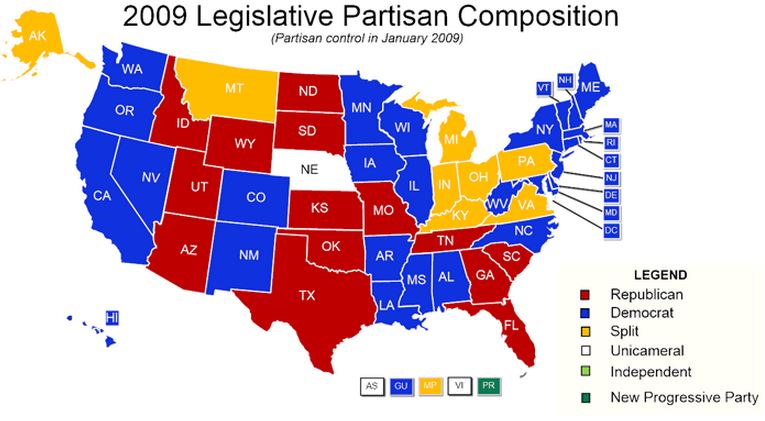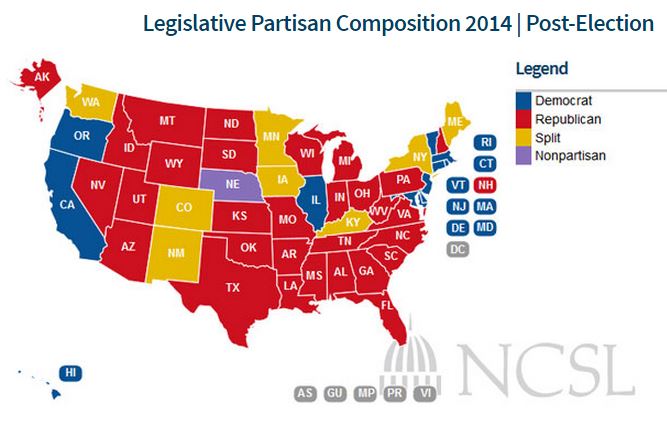In 1932, Justice Louis Brandeis referred to the then-48 states as “laboratories of democracy” — separate compartments in which legal innovations can be tested without risk to the others.
This was back in a day when the federal government was less involved in citizens’ lives, and Brandeis said it because he envisioned the most liberal states dabbling in more left-wing policies.


But as the federal government has grown larger and more intrusive in the Obama era, the opposite has occurred. Americans have reacted to President Obama by choosing more conservative rule at the local level.
In last Tuesday’s elections, Republicans gained a net 10 of America’s 99 state legislative chambers. Republicans won control of state Houses in Minnesota, Maine and New Mexico, and of state Senates in Colorado, New York and Washington state. Democrats suffered complete and unexpected collapses in both Nevada and West Virginia, losing both houses at once — in the latter case, losing an 80-year majority.
Since Obama was inaugurated in 2009, Democrats have lost a net 32 state legislative chambers — more than half of the 62 chambers they controlled. Including Maryland, where they still have the seats to override vetoes by the new Republican governor, they exercise complete control over the legislative process in just eight states.
Republicans, on the other hand, now control 69 of the 99 legislative chambers — an all-time high for the party. If you include Missouri, where Republicans have the numbers to override vetoes by Democratic Gov. Jay Nixon, Republicans now completely control the legislative processes in 24 states — 25 if Alaska Gov. Sean Parnell pulls out a victory.
Most of the laws Americans live under are state laws, and policy changes in recent years have been even more state-focused than usual. Voters reacted to Obama’s hard-left turn during his first two years in office by depriving him of his congressional majority, and as a result little policy innovation occurs in Washington today.
This is why most of the interesting policy innovations of the past four years have come at the state level. That includes Gov. Scott Walker’s Wisconsin union reforms, key public pension reform measures in New Jersey and Utah, new right-to-work laws in Indiana and Michigan, the abortion law that made Wendy Davis famous, and the creation of a sensible regulatory framework for fracking in states that permit oil and gas exploration on private land.
This is also why more innovation is sure to come in the next two years.
The 2014 midterm elections will thus have very far-reaching policy implications, beyond even the new Republican majority in the U.S. Senate. What’s more, there will be political consequences for both parties. State legislators comprise the farm team from which many of the parties’ future congressional candidates come. Republicans have a huge new crop of potential stars. The Democrats’ bench has just been depleted at its lowest levels, just as their presidential field was whittled down by losses at the federal level.
This element of last Tuesday’s elections makes them even more devastating for Democrats than the more publicized federal results would suggest.
